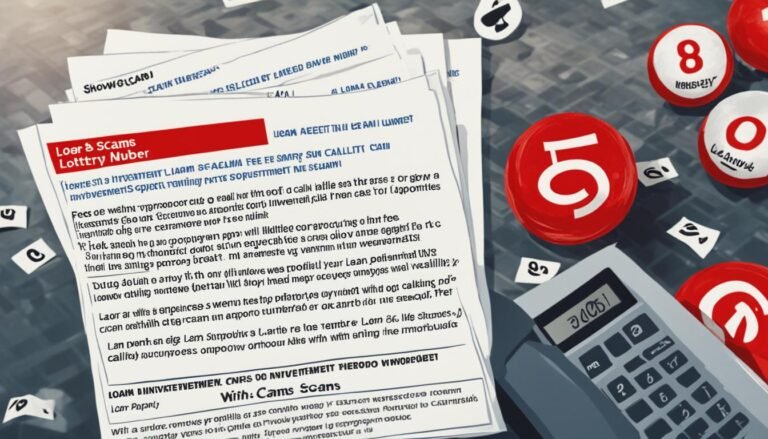Avoiding Pitfalls: Common Mistakes to Avoid with Title Loans
Title loans can be a quick financial solution for those in need of fast cash, but they often come with high risks. These loans allow borrowers to use their car title as collateral, and while they provide immediate funds, failing to fully understand the terms can lead to severe financial consequences. Here are some of the most common mistakes people make with title loans and how to avoid them.
What Are Title Loans and How Do They Work?
A title loan is a type of secured loan where the borrower uses their car as collateral. The main aspect of title loans requirements is that the lender holds the vehicle’s title until the loan is paid off. The loan term is typically short, ranging from 15 to 30 days. If the borrower fails to repay the loan, the lender can repossess the car to recover their funds.
Title loans are known for their high interest rates, often reaching up to 300% APR when annualized. They are designed to be quick, but the financial strain can last much longer if the borrower isn’t careful.
Common Mistakes with Title Loans
Despite their convenience, title loans often lead to financial troubles for borrowers. Here are the top mistakes to avoid:
1. Borrowing More Than You Can Afford
One of the most frequent errors borrowers make is taking out more money than they need or can afford to repay. It can be tempting to borrow a larger amount to cover multiple expenses, but this increases the interest and fees, making it harder to repay the loan.
- Tip: Only borrow what you need. Calculate the total repayment amount, including interest, to ensure it fits within your budget.
2. Not Understanding the Terms and Conditions
Title loans come with detailed agreements outlining the terms of the loan, including the interest rates, fees, repayment deadlines, and penalties for late or missed payments. Failing to carefully read and understand the contract can lead to unpleasant surprises, such as hidden fees or extreme penalties for late payments.
- Tip: Take the time to thoroughly review the loan agreement. If you’re unsure about any terms, ask the lender for clarification before signing.
3. Failing to Shop Around for the Best Rates
Interest rates and fees vary significantly between title loan lenders. Some may offer slightly better terms, while others charge exorbitant fees. Many borrowers rush into the first offer they receive without comparing options, which can lead to overpaying on interest and fees.
- Tip: Shop around and compare offers from multiple lenders. Be sure to look beyond the interest rate and consider other fees, like administrative costs or penalties for early repayment.
4. Missing Repayment Deadlines
Failing to repay a title loan on time can have serious consequences, including additional fees, higher interest rates, and even the repossession of your car. Many borrowers underestimate the difficulty of making such a large payment within the short loan term.
- Tip: Create a repayment plan before taking out the loan. Ensure you can meet the repayment deadline, and set aside the necessary funds to avoid penalties.
5. Allowing the Loan to Roll Over
Some lenders allow borrowers to “roll over” their loan if they can’t repay it on time, extending the term by adding another cycle of interest and fees. While this may provide temporary relief, it often leads to a cycle of debt that becomes harder to escape from.
- Tip: Avoid rolling over the loan. If you’re struggling to repay it, consider seeking help from a credit counselor or looking for alternative ways to consolidate or refinance the debt.
6. Overlooking Alternative Loan Options
Many people turn to title loans without considering less risky alternatives. While title loans may seem convenient, other financial solutions like personal loans, payday alternatives, or even credit cards could offer better terms with lower interest rates.
- Tip: Explore other options before committing to a title loan. Many credit unions offer small, short-term loans at much lower interest rates than title loan companies.
How to Avoid Title Loan Traps
Title loans can be difficult to manage, but by taking the right precautions, borrowers can avoid falling into financial traps. Make sure to first keep in mind that not all lenders are created equal. Some may use predatory practices or charge hidden fees that make repayment more difficult. Look for reputable lenders with transparent terms and a good track record of customer service.
- Check reviews, consult the Better Business Bureau, and ensure the lender is licensed in your state before signing any agreements.
Have a Repayment Plan
Before taking out a title loan, create a detailed repayment plan. This plan should outline how you will meet the repayment deadline and include a cushion for unexpected expenses. Borrowers who plan their repayments are far less likely to default on their loans. Set aside emergency funds or seek financial advice to ensure your repayment plan is realistic.
Avoid Multiple Loans
Taking out multiple loans is a quick way to spiral into debt. Each loan adds more interest and fees to your financial burden, and it can become nearly impossible to repay them all. Make sure to stick to one loan at a time and focus on repaying it in full before considering any other borrowing.
Alternatives to Title Loans
For those looking for financial assistance, title loans are not the only option. Here are some alternatives that may offer more favorable terms:
- Personal Loans: Many banks and credit unions offer personal loans with lower interest rates and longer repayment terms.
- Credit Card Cash Advances: While not ideal due to higher interest rates, this option can be safer than a title loan if you have a manageable credit card balance.
- Payday Alternative Loans: Some credit unions offer small loans with much lower fees and interest rates than traditional title loans.
- Borrowing from Friends or Family: While this may not always be an option, borrowing from a trusted friend or family member could save you from high-interest loans.
Title loans can be helpful in certain situations, but they come with significant risks. By avoiding common mistakes such as borrowing more than necessary, neglecting to understand the terms, and failing to shop around, you can minimize those risks. Always consider alternatives and ensure you have a solid repayment plan before committing to any loan. If you’re ever in doubt, seek financial advice from a professional who can help you navigate the best options for your specific situation.







